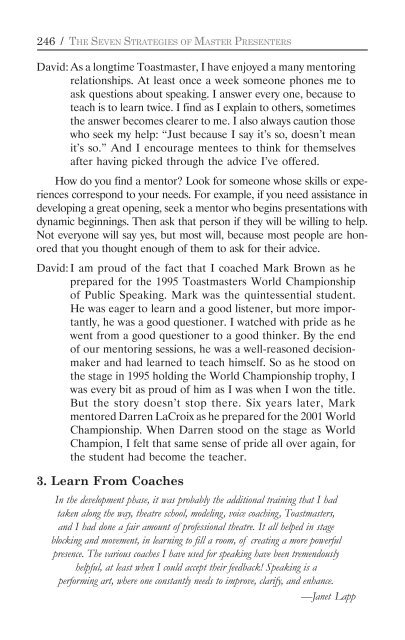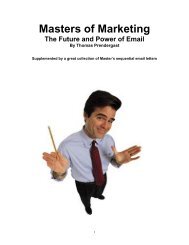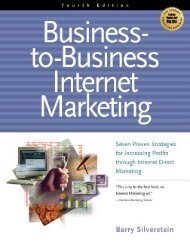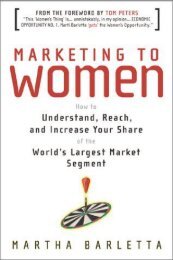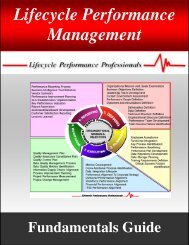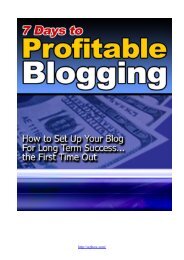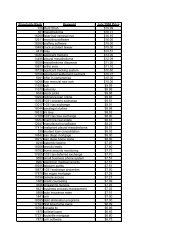The Seven Strategies of Master Presenters - Lifecycle Performance ...
The Seven Strategies of Master Presenters - Lifecycle Performance ...
The Seven Strategies of Master Presenters - Lifecycle Performance ...
You also want an ePaper? Increase the reach of your titles
YUMPU automatically turns print PDFs into web optimized ePapers that Google loves.
246 / THE SEVEN STRATEGIES OF MASTER PRESENTERS<br />
David: As a longtime Toastmaster, I have enjoyed a many mentoring<br />
relationships. At least once a week someone phones me to<br />
ask questions about speaking. I answer every one, because to<br />
teach is to learn twice. I find as I explain to others, sometimes<br />
the answer becomes clearer to me. I also always caution those<br />
who seek my help: “Just because I say it’s so, doesn’t mean<br />
it’s so.” And I encourage mentees to think for themselves<br />
after having picked through the advice I’ve <strong>of</strong>fered.<br />
How do you find a mentor? Look for someone whose skills or experiences<br />
correspond to your needs. For example, if you need assistance in<br />
developing a great opening, seek a mentor who begins presentations with<br />
dynamic beginnings. <strong>The</strong>n ask that person if they will be willing to help.<br />
Not everyone will say yes, but most will, because most people are honored<br />
that you thought enough <strong>of</strong> them to ask for their advice.<br />
David: I am proud <strong>of</strong> the fact that I coached Mark Brown as he<br />
prepared for the 1995 Toastmasters World Championship<br />
<strong>of</strong> Public Speaking. Mark was the quintessential student.<br />
He was eager to learn and a good listener, but more importantly,<br />
he was a good questioner. I watched with pride as he<br />
went from a good questioner to a good thinker. By the end<br />
<strong>of</strong> our mentoring sessions, he was a well-reasoned decisionmaker<br />
and had learned to teach himself. So as he stood on<br />
the stage in 1995 holding the World Championship trophy, I<br />
was every bit as proud <strong>of</strong> him as I was when I won the title.<br />
But the story doesn’t stop there. Six years later, Mark<br />
mentored Darren LaCroix as he prepared for the 2001 World<br />
Championship. When Darren stood on the stage as World<br />
Champion, I felt that same sense <strong>of</strong> pride all over again, for<br />
the student had become the teacher.<br />
3. Learn From Coaches<br />
In the development phase, it was probably the additional training that I had<br />
taken along the way, theatre school, modeling, voice coaching, Toastmasters,<br />
and I had done a fair amount <strong>of</strong> pr<strong>of</strong>essional theatre. It all helped in stage<br />
blocking and movement, in learning to fill a room, <strong>of</strong> creating a more powerful<br />
presence. <strong>The</strong> various coaches I have used for speaking have been tremendously<br />
helpful, at least when I could accept their feedback! Speaking is a<br />
performing art, where one constantly needs to improve, clarify, and enhance.<br />
—Janet Lapp


